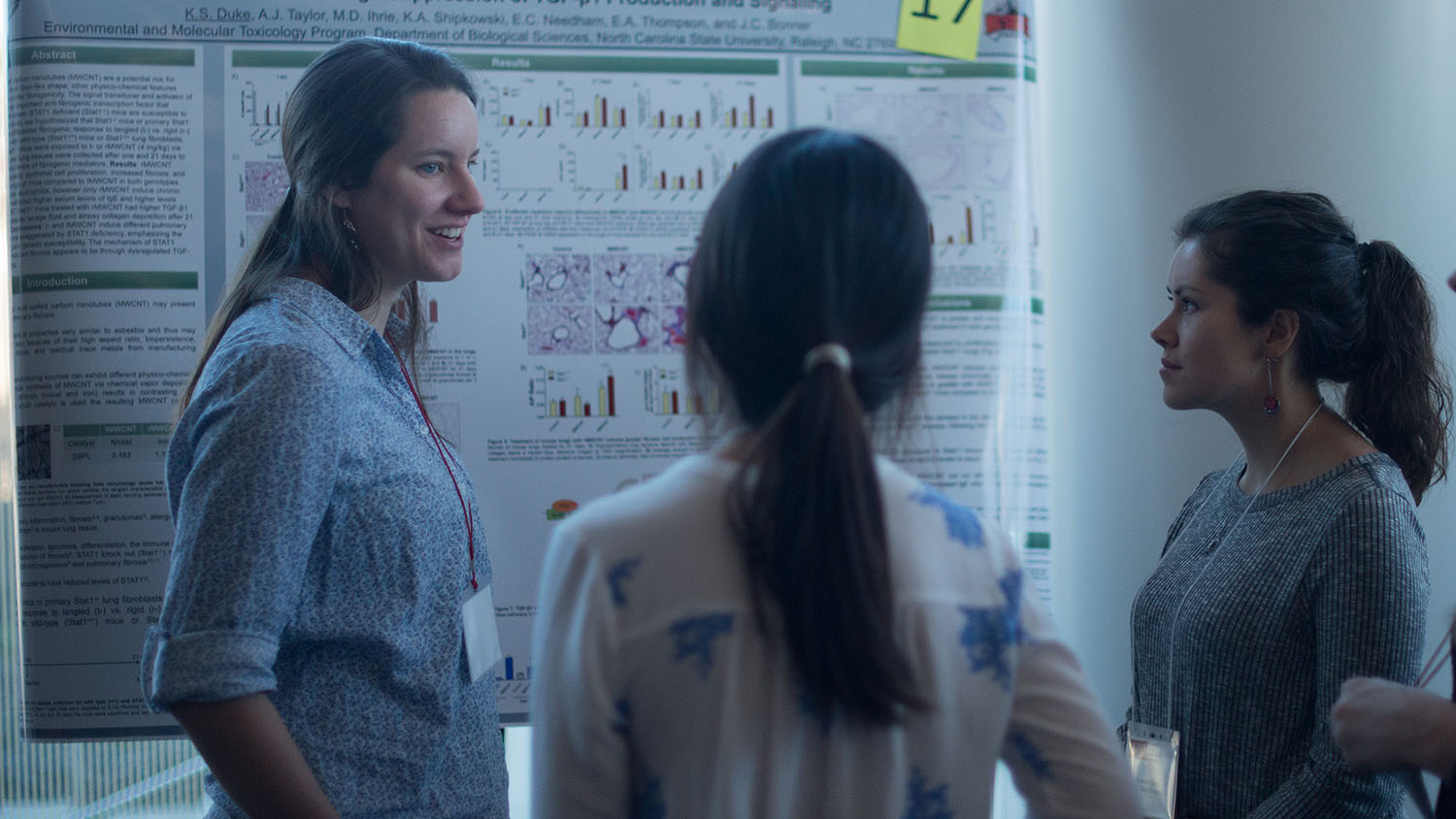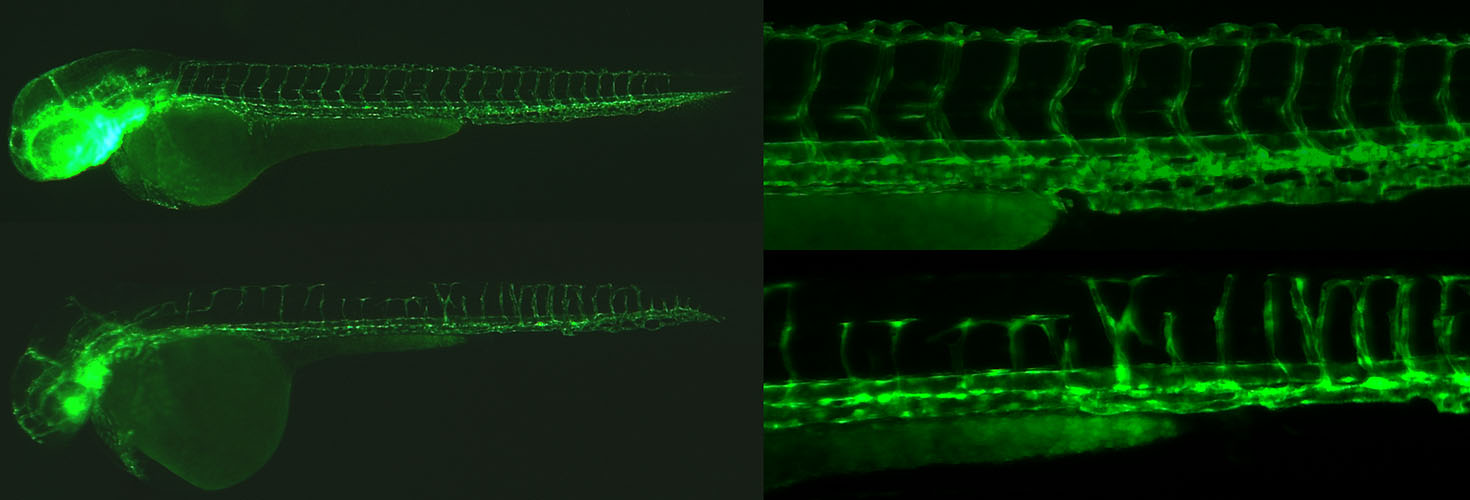
Master’s Programs
Continuing your education with research or non-research based graduate training in toxicology and environmental health sciences.
The NCSU Toxicology Program offers two distinct master’s level degrees including the Master’s of Science in Toxicology degree (MS) and the Master in Toxicology (MTOX).
Degree Programs
Master’s of Science in Toxicology
The MS in Toxicology is a research-oriented degree requiring a minimum of 30 credit hours and a written thesis. At least 20 credit hours must be graduate-level courses. The program may include no more than 6 credit hours of research and no more than 2 credit hours of seminar. Courses at the 400 level counted towards the minimum 30-hour requirement may not come from the major field. All courses must be approved by the student’s advisory committee. *Students are required to enroll in either GN 701 or CBS 770.
Students interested in the Toxicology MS degree must first identify a research mentor prior to full matriculation in to the MS graduate program. Please visit the Toxicology program faculty page to view faculty research interests.
MS students are supported through individual faculty grants as Research Assistantships (RA) or Teaching Assistantships (TA) through biological sciences.
Students who have successfully completed a Toxicology MS are currently employed as Teaching Faculty, Research Assistants, Environmental Program Consultants, Laboratory Research Analysts across academia, industry, government and the private sector.
Course Requirements
- TOX 701 – Fundamentals of Toxicology (3 credits)
- TOX 710 – Molecular & Biochemical Toxicology (3 credits)
- TOX 715 – Environmental Toxicology (3 credits)
- GN 701* – Molecular Genetics (3 credits)
- CBS 770* – Cell Biology (3 credits)
- TOX 601 – Toxicology Seminar (2 credits maximum)
- TOX 861 – Responsibility in Science (1 credit)
- TOX 695 – Master’s Thesis Research (6 credits maximum)
How to Apply


MTOX Degree
The MTOX degree is a non-thesis master’s degree designed for students who desire advanced study in toxicology, but do not wish to pursue research training. Students who desire a research-intensive program are encouraged to apply to the MS or PhD degree programs. MTOX students may be part-time or full-time, thus this degree option is often sought by professionals seeking graduate training in toxicology while maintaining a full-time career.
A minimum of 30 credit hours is required, with at least 20 credit hours of graduate-level courses. The program may not include research credits and no more than 2 credit hours of seminar, unless the total program exceeds 30 hours. Courses at the 400 level counted towards the minimum 30-hour requirement may not come from the major field.
At the discretion of the student’s advisor, a review paper focusing on the student’s interest in some aspect of toxicology might be required as a special problem (TOX 620). All courses must be approved by the student’s advisor. The MTOX degree is an Option B degree program, that is, no advisory committee or final oral exam is required. *Students are required to enroll in either GN 701 or CBS 770.
MTOX students are usually self supported.
Students who have successfully completed a MTOX degree are currently employed as Senior Veterinary Pathologist, Director Lab Operations, Research Assistant, Production Scientist and other successful positions across academia, government, industry, and the private sector.
How to Apply
